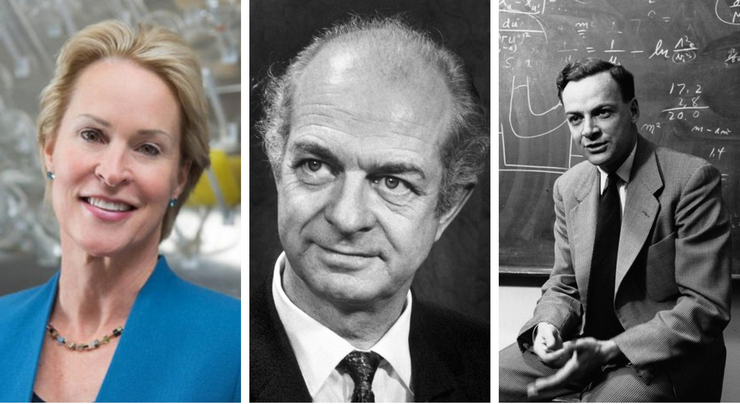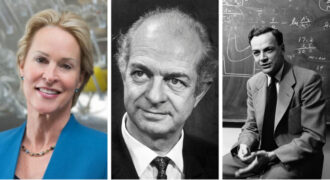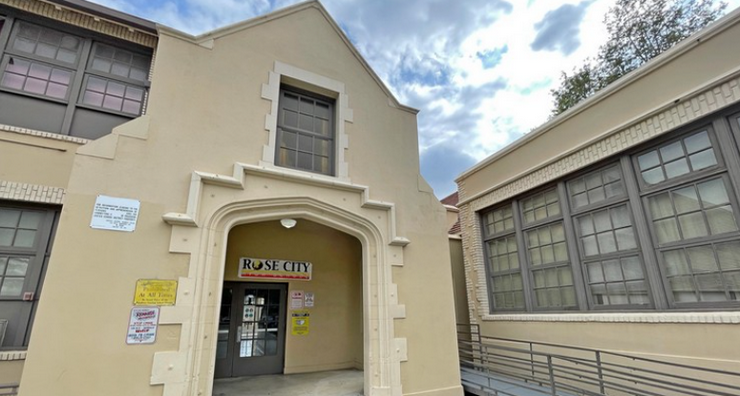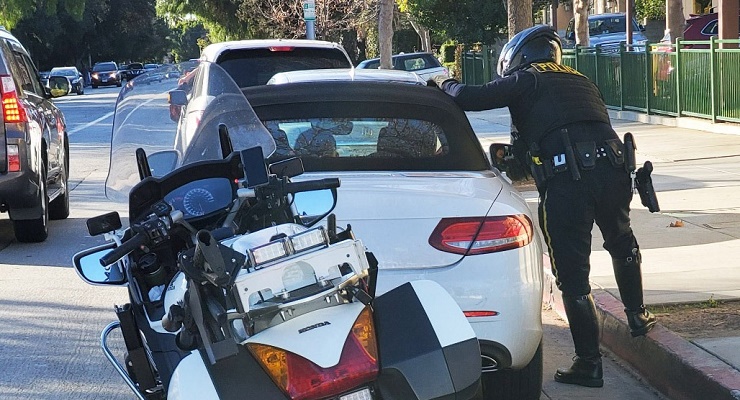
Caltech has an illustrious relationship with the Nobel Prize. The award, which is given in multiple categories, will be presented during ceremonies today in Norway and Sweden.
Over recent years a range of Caltech scientists, researchers and associates have won the Nobel Prize in many different categories — including the storied Professor Richard Feynman, for whom a separate award was also named at Caltech, the Richard P. Feynman Prize for Excellence in Teaching.
Feynman was a recipient of The Nobel Prize in Physics in 1965 for his work with 20th-century quantum mechanics and 19th-century electromagnetic field theory.
And one Caltech professor won two Nobel Prizes. For his scientific work, Dr. Linus Pauling was awarded the Nobel Prize in Chemistry in 1954. For his peace activism, he was awarded the Nobel Peace Prize in 1962.
One year ago, the 2018 Nobel Prize in Chemistry was awarded to Caltech’s Frances Arnold, the Linus Pauling Professor of Chemical Engineering, Bioengineering and Biochemistry for “the directed evolution of enzymes.”
“Frances’s work on directed evolution is a beautiful example of an enterprise that has both deep scientific significance and enormous practical consequences,” said David A. Tirrell, Caltech’s provost, the Carl and Shirley Larson Provostial Chair, and the Ross McCollum-William H. Corcoran Professor of Chemistry and Chemical Engineering.
Tirrell said that Arnold spent “decades of commitment” to exploring a powerful idea and Frances transformed the fields of protein chemistry, catalysis, and biotechnology.
At the time, Arnold who was on a business trip in Dallas, was pleasantly awakened at her hotel room with the news of her win — at 4 a.m.
“Life—the biological world—is the greatest chemist, and evolution is her design process,” Arnold said. “I may not be the best chemist but I do appreciate evolution.”
Evolution of a different sort is the focal point of this week’s Nobel Week Dialogue 2019, an official component of the prize-related activities being held in Gothenburg, Sweden.
Lars Heikensten, executive director of the Nobel Foundation, described the “Into The Unknown”-themed Dialogue conference as a gathering in which people discuss crucial issues for humanity.
This time the evolution being explored is how man will evolve in an age dominated by robots.
Helga Nowotny, former president of European Research Council, said people need to brace for a future of co-evolution with technology.
“I suggest we explore the unknown ahead of us, namely the future,” Nowotny said. “Some of you will see the future full of dark clouds, others will see bright spots, but I think we all can agree there are unprecedented challenges ahead of us.”
But, Nowotny said, the future has one characteristic that has not changed. It is inherently uncertain.
“We started a cultural evolution that rapidly overtook biological evolution,” she said. “Perhaps we are embarking into a new evolutionary path namely a co-evolutionary path with the machines that have been created by us. Due to convergence and enormous amount of data we leave all over, unprecedented computer power and clever algorithm we are able to see into the future.”
She said far beyond Google selecting what you might want to buy, there has been significant advancement in technology, in weather forecasting, banking and financial and other discoveries.
“All this is due to the complexity and complex systems that make it difficult to predict anything. Why? Because the interactions between the different parts of the system give rise to new properties and we hit a wall in what we can foresee.”
“We have two choices, we can either retreat in fear, but fear closes the future,” Nowotny said. “Or we can embrace uncertainty. And science thrives on the cusp of uncertainty.”
We are confronted with unintended consequences across a range of industries, Nowotny said.
But scientists, researchers and associates all, too, have one thing in common: Scientific research must continue regardless of the cost.
Caltech professors and associates have made sacrifices and made discoveries in chemistry, biology, engineering and additional fields.
Other Caltech faculty with Nobel Prizes include: Kip S. Thorne (BS ’62) and Barry C. Barish, winners of the 2017 Nobel Prize in Physics with Rainer Weiss; Robert Grubbs, winner of the 2005 Nobel Prize in Chemistry with Yves Chauvin and Richard R. Schrock; David Politzer, recipient of the 2004 Nobel Prize in Physics with David J. Gross and Frank Wilczek; Rudy Marcus, sole winner of the 1992 Nobel Prize in Chemistry; Richard Feynmann with Sin-Itiro Tomonaga and Julian Schinter, recipient of The Nobel Prize in Physics in 1965; and David Baltimore, winner of the 1975 Nobel Prize in Physiology or Medicine with Renato Dulbecco and Howard M. Temin.














 0 comments
0 comments


